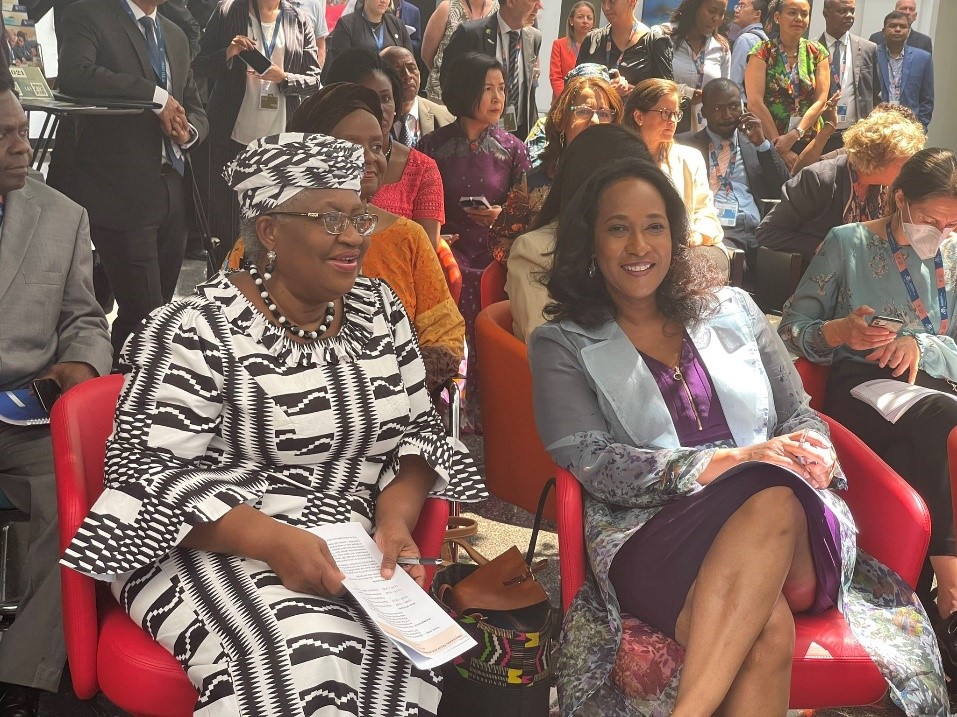Highlight 41/2022 – Women Economic Empowerment through Trade
Olha Krylova, 29 June 2022

International trade affects women and men differently. Women make up half the world’s population, but, in 2021, they only constituted 39.2% of the labour force. 90% of the world’s businesses and more than half of global employment are concentrated in micro, small, and medium-sized enterprises (MSMEs); yet women run less than one-third of all MSMEs.
Women’s economic empowerment has a positive impact on economic growth and helps to reduce poverty. The more involved women are in trade, the more economies grow. Women participation in the labour market at the same level as men can increase national GDPs by 34% and global GDP by 26%, approximately USD 28 trillion, by 2025.
However, women face higher trade barriers, such as greater difficulties in complying with regulatory and procedural requirements, poorer access to information and markets, exclusion from male-dominated distribution networks , restricted mobility, and increased limitations in access to finance. Trade can be costly, and women need to cover costs related to standard requirements, packaging, labelling, skilled staff on customs procedures, and specialised IT systems, among other expenses. Facilitating access to international markets, increasing trade finance, and lowering tariffs can resolve a lot of the challenges of women in trade.
The International Trade Center (ITC), as a joint agency of the UN and WTO, is one of the main drivers in women economic empowerment and in reaching Agenda 2030. It contributes to 10 SDGs, using different tools and methods. The ITC supports sustainable and inclusive livelihoods by boosting the competitiveness of MSMEs governed by women and by helping them to go internationally. By the end of 2021, the ITC reached its objective of connecting 3 million women entrepreneurs to international markets .
The ITC is using the following mechanisms to empower women in trade:
- Platform for women-led MSMEs to sell their products and services and source from women-owned businesses
- Virtual learning space with free webinars and UN certified e-learning courses
- Opportunities to participate in trade fairs, workshops and other business events
- Facilitating the connection of capital providers with women-led businesses
- Promoting the mainstreaming of gender-lens investment
- Building capacity of women entrepreneurs to become investment and due diligence ready
- Digital policy tool providing governments with data and resources to assess, monitor and improve the policy ecosystem for women’s economic empowerment
- 83 indicators across six pillars: trade policy, business environment, legal and regulatory framework, access to skills, access to finance and work and society.
- Supporting evidence-based policy for women’s economic empowerment
- Data currently available for 40 countries
Gender equality and women’s economic empowerment is a key accelerator for inclusive and sustainable development. The Director General of the WTO, during the 12th Ministerial Conference, emphasized that “trade is a tool for development”, which has an important role in women economic empowerment. It can substantially improve economic outcomes for women, by increasing employment and wages, creating better jobs, and lowering costs. The ITC, through its different activities, has succeeded at connecting women-led enterprises with international markets.
Olha Krylova, Highlight 41/2022 – Women Economic Empowerment through Trade, 29 June 2022, available at www.meig.ch
The views expressed in the MEIG Highlights are personal to the author and neither reflect the positions of the MEIG Programme nor those of the University of Geneva.
